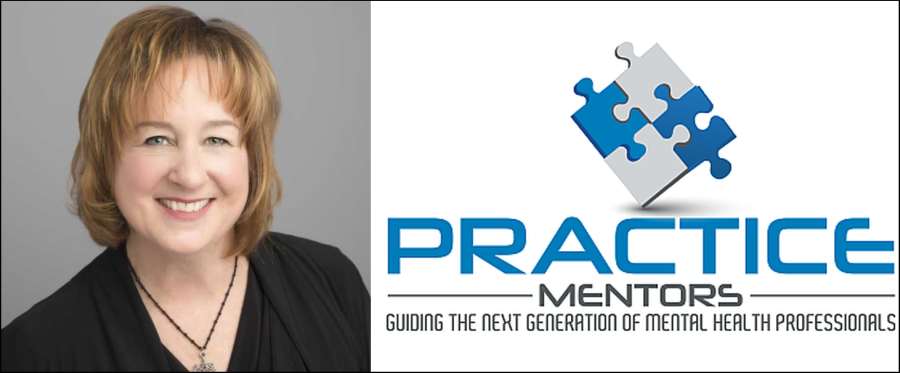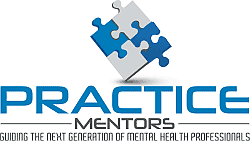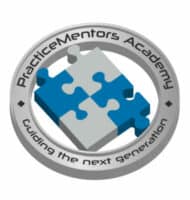BHEC Meeting Written Submission Comments

The following are the written submission comments we've presented to the BHEC Council for consideration by its members and the members of the four Boards they govern. Find out how you can submit your own comments in time for the meeting in the Summary section at the bottom of this post.
Our Written Submission Comments
Please Distribute For: August 23rd BHEC Council Meeting
To: BHEC Council and All Licensing Boards Governed by BHEC
Subject: The Rules Change Process, Committee-Board Relationships, and Proposed CE Renewal Changes
The catalyst behind my thoughts today is the proposed CE Rules Changes, but I see them as symptomatic of some framework issues I'd like to address first.
Rules Change Process Is Missing the Debate Factor
The Rules Change Process itself is a good one. It has numerous check-and-balance points built into it for Board consideration, for Council consideration, and numerous opportunities along the way for public input. Kudo's to BHEC and Darrel Spinks for implementing a functional system. On paper.
The problem is that it's only functional if all the players work the system properly, and I'm not seeing that. I know what the process is. I acquired a workflow diagram from Tim Speers last year, and I've been watching Committees and Board members propose and pass poorly considered measures to the next level since it was put into place. I attend every meeting virtually and I am literally not seeing active, informed debate from way too many members.
I too often see board members that do not seem to have an understanding of subject matter being discussed or haven't read the packaged materials that were distributed to them. That package includes the written public comments that caring folk take many hours out of their practice days to craft and submit.
One example among many, at the most recent LMFT Board Meeting, licensee L. Hayes submitted a very lengthy, well thought out written submission that must have taken her countless hours to draft. It was distributed to Board members in their pre-meeting materials package, and her piece contained many well-considered points (see 12.b), each of which would have made for an outstanding discussion during the meeting.
There is NO WAY anyone with a degree could read her submission and not come up with A SINGLE POINT they felt was worthy of discussion at the meeting. Yet, all of 5 seconds was devoted to mentioning that "there were two public submissions", as they dashed over it to get to the next item on the agenda. Very disheartening.
This tells me nobody read the d**n thing. Nobody. What's the point of public comment, written or oral, if the Board members are not going to consider it? (How can I urge people to submit comments and participate in the system if you people won't read them and publicly debate the points??)
What I'm seeing is the good ol' boy network in action, passing Little Johnny on to the next grade even though he can't read. I appreciate your willingness to serve, but please bring your willingness to study and do the job correctly or bow out and let someone else do it. Lead by example.
The Standards Committee/Boards Relations Issues
I appreciate the Standards Committee's objective but I'm fairly certain that a one-size-fits-all approach to across the board rule-standardization will not work in all instances. Works for some rules, won't work for others.
Using the recently proposed CE Renewal Rules Change proposal as my body of evidence, it appears to me that the atmosphere in the room at the time of this proposal's development must have been one of, "how can we draft something that checks all these boxes?"
[ ] Keeps all 4 Boards and their members happy
[ ] Keeps our Academia friends happy
[ ] Keeps our Associations happy and their revenue streams flowing (our "key stakeholders", which doesn't include Independent Stakeholders like me)
[ ] Can be easily pushed through the BHEC approval process
"What the licensees want", and "what is best for Joe Citizen", were apparently not on the checklist since there is nothing about a) the proposal, or b) the debate currently happening within the approval process, that offers any proof that they were considered at the proposal's conception (although, at their last gathering, the LPC Board's Steven Hallbauer did seem to sit up in his chair and suggest, with some vigor, that more in-depth discussion was needed).
Convince me I'm wrong 'cause I'm not seeing it.
Keep the Standards Committee because we need them to do this job. But apparently, their governing rules need to be tweaked before they're allowed to create any other proposals. I have concrete thoughts on what those tweaks need to be if anyone on the Council would like to have that live conversation.
Question Everything About Proposed Changes
There needs to be a set of questions in place that any proposal from any board or committee must be subjected to. That might look something like this:
- What's driving this proposal, this need for change? Is there a quantitative problem we can talk about on this point? Is this a solution looking for a problem?
- Does this best serve Joe Citizen or does it do him potential harm, even if we can't quantify the potential damage? What is our common sense and gut telling us?
- Is this a social/political solution desperately looking for a problem to fix? If so, is it really our place, as a licensing board, to legislate yet another layer of public morality "from the bench"?
- Are we proposing a methodology simply because "that's the way we've always done it"? Is that really the best way to approach this particular problem?
- Is additional regulation necessary? Does it amount to micro-management?
- Do we trust our licensees enough on this point to make their own decisions, or not? If not, why not?
- What do our licensees think about this? (Again, I understand that the Rules Change Process has opportunity for public and licensee input but if it goes unread, unconsidered, and undebated, maybe we have a larger, systemic problem than we want to admit.)
So, if the issue has been that "no one has ever come up with a set of vetting questions for committee or rules change proposals before", well, now you have one.
BTW, that 90% of the Public Members on all 4 Boards don't seem to have ever possessed a copy of the Rulebook for the Board they're representing, much less read it to be able to participate in these conversations, is very sad. I understand their purpose as 'public members' but if they don't have a clue as to the real effect these rule changes are going to have on the licensees and by extension, Joe Citizen, how are they helping the process?
Proposed CE Renewal Requirements
I have done as thorough a dissection of the proposed CE Rules Changes and what I think about them as I can, in a series of blog posts on our website, PracticeMentors.us. I will not reproduce those arguments here, but I urge you to take the time to read them before you continue the approval process on this behemoth. I will, however, submit a brief recap of my main points then offer up some additional thoughts.
My Top 6 Objections to The Proposed CE Rules Changes
1. What We Had In Place Was Working
We went from a DSHS-era, confusing and convoluted, set of CE guidelines, to a Sunset-Mandated set of very simple CE Rules. Now I suppose enough time has passed we can ignore the Sunset Commission's directives and return to an unnecessarily complicated schema? Why? Standardization doesn't require or equate to complication.
2. The 50% Rule
This line item would be the Psych Board's 1992-era contribution to this beast we're building. Why is it necessary? We operated just fine for the last 2-3 years but now we can't live without it? Who are we placating here?
3. Independent Stakeholders Ignored
Architects of the ce proposal insist that "everyone is included", that no one is excluded from offering ceu's. It's not that simple. What you've assembled is an "you (Independent Stakeholders) stay on your side of the tracks, we'll (Associations, Academia) go anywhere we want to in this town, and we'll allow you to participate as long as you're ok with the economic limitations that come with it” arrangement.
No, I'm not ok with it.
Either add a new category to the approved Providers List for “Independent Stakeholders” or, better yet, trash the entire proposal and start all over with simplification in mind, like the current LPC guidelines.
4. Required Multi-Cultural Diversity Hours
“Multi-Cultural Diversity” used to be about understanding other native, geo-based cultures. There is an obvious and very public effort underway to hijack and redefine it to include and normalize conditions that have always been categorized as mental illness, and I am not a fan. I cannot possibly know everything about every geo-based sub-culture that exists, and now certain factions are creating new ones based on personal beliefs??
It is up to ME to adopt an attitude based on the golden rule and work from there. If Joe Citizen thinks he is being treated unfairly by one of our licensees, then that's what the complaint process and penalty matrix are for. I do not wish to be brow-beaten every two years for 3 hours with either the latest list of sins I didn't know I had committed, or additional mental health issues being added to the list of things to normalize. It's not helping me in my practice and exists only to advance a social agenda. No thanks.
“Treat others with love and respect.”
There. It really is as simple as that. Lose the Multi-Cultural/Diversity agenda requirement completely.
5. Limited Flexibility-Too Many Required CE Topics
Too large a percentage of my required renewal hours are selected for me. Topic flexibility has been largely removed and I've been told, "well, nothing's keeping you from taking more than 24 hours". Ok, you paying for those for me? You have extra calendar time for me that I don't know about? That's a very shallow, arrogant, and condescending response.
6. You're Mucking About With MY Business Revenue!
Every, single change you make has a ripple effect in our business models. (Wondering out loud if vigorous, well-considered, pre-approval debate with licensees and the public might help avoid those unintended consequences??) The proposed rule changes will severely impact licensee participation in my workshops because of the 50% Rule and my exclusion from the Approved Vendors list. You're negatively impacting my revenue and you just earned my unwavering, inescapable attention.
Again, either add a new category to the Approved Providers List for Independent Stakeholders or, better yet, trash the entire proposal and start all over with simplification in mind.
BTW, Have You Considered the Logistical BHEC Tracking Nightmare?
Who's going to track all of this on the BHEC end of the street? Guessing the pat answer will be, "BHEC won't have to track it, they just audit occasionally, and the counselor will be responsible for tracking it all."
Uh-huh.
I want a 50-yard-line seat for that train-wreck. We teach ce workshops and I can tell you way too many of us have trouble keeping track of paper certificates. Now you're going to require an Excel spreadsheet and a basic knowledge of algebra to track ce's? If you think it's going to be that simple to track then you haven't put any sausage through this grinder yet.
This is going to roll downhill into some BHEC staffer's lap, who's going to end up in Darrel's office. Real fly-on-the-wall stuff!
Compliance and Board Micro-Management
Counselors in 2022 are overwhelmed with regulations and compliance on multiple levels of jurisdiction. It. Is. Overwhelming. In fact, I'm willing to wager that a majority percentage of Board Members aren't doing 100% of their legally required compliance in their practices, yet here we are, looking at yet another layer of unnecessary regulations we must be responsible for from people who are not totally compliant. Get your houses in order before you come to redecorate mine!
We're over-burdened with regulations, codes, and guidelines and I haven't yet heard one good argument for adding more to the problem. “Keep It Simple”, works.
See you in the public, 3-minute comments.
Summary
If you'd like to submit your own written comments about the proposed CE Rules Changes you may either pen your own and submit them, or feel free to copy/paste anything you read in this blog post and modify to better reflect your wishes.
Email your comments to general@bhec.texas.gov but do it today because the cut-off date is looming and the BHEC staff needs time to copy and distribute to all Council members prior to the meeting. You got this. Speak up and be heard or be happy with what we get.
Plan Smart. Be Safe. Serve Others.
Kathleen Mills, LPC-S, CEAP

Got An Opinion?
These posts are my beliefs based on my a) 32 years of practice as a mental health provider and b) my own research. Whether you agree or disagree, please feel free to leave your civil, constructive comments below. I try very hard to back up my liberty-based statements with my own experience and/or verifiable facts and I would ask you to do the same. You do not need to be logged in to leave a comment.
The Counseling Landscape Workshop Series
The Counseling Landscape Workshop Series Everything we teach is based around The Counseling Landscape. That’s the body of information you need to know in order to run a successful practice, a lot of which is required by BHEC. Completing this series of workshops will put you in the top 5% of all mental health counselors trying to run a practice today and it will put you on a firm, safe foundation. Oh, and each…



These were my comments:
I am writing to express my concerns about proposed changes to the rules.
The overall concern I have relates to increasing complexity and decreasing flexibility for the therapist. As a business owner, I work with wonderful, well intentioned therapists of several different licenses. All of them are struggling with the mandates being expanded to learn more specified information. I love the group I work with because they are all curious and they want to expand their knowledge and ability to serve the public. There are many wonderful trainings that expand understanding and skill sets to serve the community and the varied populations, but the more trainings are mandated the less likely they are to have, time, energy and means to invest in these life changing practices and it will instead be replaced by jumping through hoops.
I strongly believe that the more you complicate the licensing process and regulations, the more likely you are to have misunderstandings, decreased compliance (frequently out of ignorance), and declining skills from our counseling population when we are in need of attracting more wonderful people to the field. I also believe that you will further encourage those counselors who become aware of it, to move into “related” fields that are unregulated altogether. This is an option that is far more likely as the proliferation of internet options continues. Once they stop being “counselors” it actually frees them up to pursue more forms of engagement with the public and they can move across state and national lines, freely, but providing these services. In effect, eroding the level of value placed on our profession and increasing the risks of harm to the public.
I recently asked a lawyer friend of mine to find some of the rules that we are expected to follow. Despite being trained in reading through the legal jargon that inundates the rule books and alienates many members because they really don’t understand, he was unable to find answers to the questions in under an hour of searching. How likely is it that our members are able to understand and find what they need when a lawyer cannot???
I also find it odd that the boards treat clinicians in the opposite of the ways we are taught to treat our clients. We communicate to simplify complex ideas rather than to make simple ideas more complex. We make it easier for people to act on the things we teach and focus on removing barriers. Why aren’t these same skills applied to running the boards? Do they not work? Do you think complex, obtuse, legal jargon improves outcomes for anyone?
Finally, I am against specifically making changes in the CEU’s requirements, both as to who can provide them, and to add the cultural diversity requirement that seems more politically motivated to appease a narrow audience while ignoring many other needs and points of view. Why do certain cultures get prioritized by the boards over others? Isn’t that unethical?
Sincerely,
Brent Crane
—
Brent E. Crane, LMFTDirector- Thrive Family Counseling-SLBusiness phone number 281-937-4133brent@thrivefamilycounseling.com
I am in complete agreement with you… and it is refreshing to hear others want the freedom to choose THOSE trainings that would help OUR CLIENT LOAD the most.
As an LPC-S, this proposed rule would take up 16/24 of my needed CEU’s per renewal cycle.
NOT COOL.
In September, I will be taking a 3 day intensive, 24 CEU certified training for mental health professionals who want to incorporate a more holistic approach to treatment for clients. Only 8 of these 24 hours/training will I be able to be count.
I am in agreement with you: This is a major disaster for the 80,000 Licensed Clinicians.